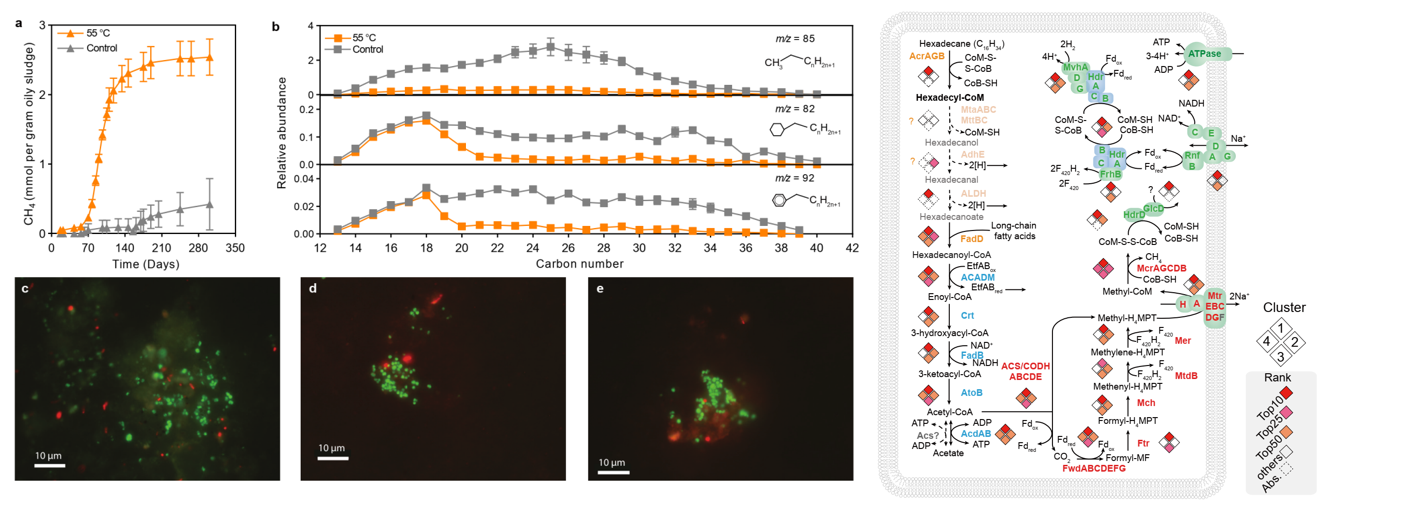Recently, Professor Meng Li’s group from the Institute for Advanced Study (IAS) of Shenzhen University cooperated with Professor Lei Cheng’s group from Biogas Institute of Ministry of Agriculture and Professor Gunter Wegener’s group from Max Planck Institute for Marine Microbiology. They made a breakthrough in studies on the methanogenic hydrocarbon degradation by archaea, and published a paper titled “Non-syntrophic methanogenic hydrocarbon degradation by an archaeal species”in Nature. Combining stable carbon isotope labeling, metagenomic/metatranscriptomic sequencing, and high-resolution mass spectrometry technology, this paper provided an in-depth analysis of a novel methanogen (Candidatus Methanoliparum), and validated its function of degradation of long chain alkyl hydrocarbons and methane production for the first time. Professor Meng Li from IAS is one of the corresponding authors, and associate researcher Cui-Jing Zhang from IAS is the co-first author.
Oil is an important energy source. After more than a century of mining, there are a lot of old oil wells which could no longer be exploited by means of conventional crude oil mining. Oil could be transformed into methane by microorganisms, which is a cheap and clean mining technology. Previous researches suggest process of methanogenic hydrocarbon degradation is performed by syntrophic metabolism of bacteria and archaea, which is time-consuming and unstable. This study obtained a novel methanogen (Candidatus Methanoliparum) from long time enrichment of Shengli oil samples. Combining fluorescence in situ hybridization, stable carbon isotope labeling, metagenomic/metatranscriptomic sequencing, and high-resolution mass spectrometry technology, they proved Ca. Methanoliparum could directly oxidize long chain alkyl hydrocarbons, and produce methane through beta-oxidation and Wood-Ljungdahl pathway, without the help of bacteria (Figure 1). This research validated degradation of long chain alkanes and methane formation by Ca. Methanoliparum, and proposed an additional mode of methanogenesis (i.e. alkylotrophy) adding to CO2 reduction, methylotrophy, methyl reduction, acetate fermentation, and the recently reported methoxydotrophy. Therefore, the demonstration of the unique features of Ca. Methanoliparum in hydrocarbon conversion may fundamentally change our view of crude oil transformation and biogeochemical processes in subsurface oil reservoirs.
This work was supported by the grants from the National Natural Science Foundation of China, the Key Project of Department of Education of Guangdong Province and the Science and Technology Innovation Committee of Shenzhen.
Paper link: https://www.nature.com/articles/s41586-021-04235-2.

Figure 1. Methanogenic hydrocarbon degradation by Candidatus Methanoliparum and predicted metabolic pathways


